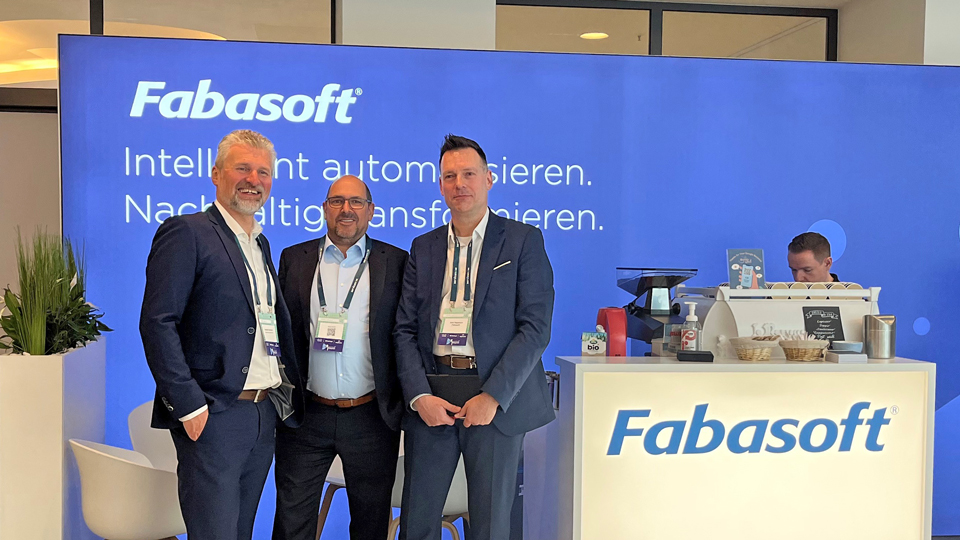The advancing climate change requires the realization of the "net-zero target" agreed at the 2015 Paris Climate Conference. Environmentally conscious companies like Fabasoft not only assume responsibility by participating in the United Nations Global Compact (UNGC) and through ecological, social and sustainable business practices (ESG criteria), taking into account the Sustainable Development Goals (SDGs) according to Agenda 2030. They also actively contribute to decarbonization and thus to the mitigation of global warming with climate science-based measures – so-called science-based targets (SBT).
1.5 °C limit on global warming as a sustainable, global climate strategy
The global need for action on the part of the population, but above all of companies, in terms of sustainability and environmental protection is huge. So huge, in fact, that at the 2015 UN Climate Conference in Paris, the representatives of the international community resolved to limit global warming in the long term to less than 2 °C – preferably 1.5 °C – compared to pre-industrial levels. As the most important prerequisite for this, the Paris Agreement stipulates a reduction in net greenhouse gas emissions to zero by 2050 ("net-zero target"). This means cutting back harmful carbon dioxide as far as possible and eliminating or offsetting unavoidable emissions, for example through reforestation or technical capture from the ambient air.
According to the 2018 Special Report of the Intergovernmental Panel on Climate Change (IPCC), limiting the global temperature increase to 1.5 °C is necessary to avert serious effects of climate change.
The UN serving the environment
Even before that, the member countries of the UNO (United Nations Organization) had repeatedly adopted corresponding action plans or other such measures on this subject. Of particular relevance is the United Nations Global Compact (UNGC) of 2000, with its ten basic principles relating to human rights, labor, the environment and anti-corruption. In addition, the criteria for sustainable business under environmental, social and governance aspects (ESG) established in 2006 or the Sustainable Development Goals (SDG) included in Agenda 2030 in 2015 represent essential guidelines.
However, the Paris Climate Agreement, ratified in almost all countries of the world [1], with its first concrete objective to curb global warming, is considered a milestone. Even the U.S. withdrew its exit during the Trump era under the presidency of Joe Biden. The EU enshrined this commitment in the European climate law, an element of the European Green Deal, setting out to achieve a 55 percent reduction in CO2 emissions from 1990 levels by 2030 and climate neutrality by 2050. This results in the need for companies to quickly initiate far-reaching and in-depth activities. Support for this is provided by the Science Based Target initiative (SBTi).
Science Based Targets initiative (SBTi) counteracts climate change
Founded in 2015, SBTi promotes ambitious emission reduction plans based on climate science in the private sector and is aligned with the intentions of the We Mean Business Coalition. The nonprofit partnership of Carbon Disclosure Project (CDP), United Nations Global Compact (UNGC), World Resources Institute (WRI) and World Wide Fund for Nature (WWF) provides guidance and tools for this purpose. In addition, the initiative carries out an independent assessment and approval of environmental protection measures in accordance with its strict criteria, which are based on a global warming target of 1.5 °C.
Accordingly, companies must define targets and steps to minimize their Scope 1 and Scope 2 emissions for the next five to ten years ("near-term targets") or longer ("long-term targets"), taking into account the "Greenhouse Gas Protocol Corporate Standard". Scope 1 relates to owned or controlled sources, Scope 2 to purchased energy for own use. If the indirect Scope 3 emissions that occur in the value chain (such as the energy consumption for common areas in rented properties or the purchase of goods and services) exceed 40 percent of the company-wide CO2 balance (Scope 1, Scope 2 and Scope 3), this must also be covered. An exception exists for small and medium-sized enterprises (SMEs). For these, the commitment to measure and reduce Scope 3 is sufficient.
Fabasoft contributes to Paris Climate Agreement by ambitious environmental measures
Fabasoft is contributing to the Paris Climate Agreement as part of the SBTi, underlining its long-standing dedication to sustainability, environmental protection and social responsibility. The defined "near-term target" includes a commitment to reduce direct (Scope 1 from the car fleet) and indirect (Scope 2 from purchased energy for electricity, heating and cooling) emissions by at least 42 percent by 2030 compared to the base year 2021, thus achieving the 1.5 °C target according to the SBTi calculation model. Scope 3 decarbonization is also envisaged.
Science-based climate goals: avoid, reduce, compensate, evaluate
To reach this goal, Fabasoft undertakes a number of measures ranging from green IT and modern means of communication to environmentally friendly and resource-conserving mobility and the sustainable design of supply chains. These include, in particular, the use of renewable energies in offices and data centers, the design of energy-efficient office spaces, state-of-the-art technology, and the increased use of video conferences and online meetings. In addition, the promotion of e-mobility, the focus on organic quality and regionality for short transport routes, and the avoidance of paper all contribute to reducing the ecological footprint. Fabasoft offers employees important incentives for sustainable commuting by promoting the "Klimaticket" (climate ticket) or the city bike Linz service and expanding the e-charging stations in the underground car park. In parallel to the climate ticket, a free shuttle service is available to employees from Linz Central Station to Fabasoft headquarters and back in an all-electric van. Fabasoft also offsets greenhouse gas emissions by supporting certified climate protection projects (including the "Sky Wind Project" in India) and prefers to book business trips by rail.
As part of the yearly sustainability reporting, Fabasoft evaluates its "eco-balance" according to scientific methods and voluntarily commits itself to adhere to the principles of the Global Reporting Initiative (GRI). Long-term management under ESG aspects and participation in the UNGC are also a matter of course. Details can be found in the annual report and on the website.
Science-based targets generate benefits for climate and economy
Legal requirements and the awareness of the urgency of decarbonization are increasingly convincing companies worldwide of science-based targets. According to the SBTi website, these go hand-in-hand with successful business operations: Sustainable alternatives in energy, mobility or production processes boost profitability in the longer term and drive innovation. They improve stakeholder confidence and resilience in the face of stricter emissions-related regulations in the future.
Sustainability criteria are also playing an increasingly important role in public procurement procedures, according to René Mayer, lawyer and head of the "Praxisgruppe ,Öffentliches Recht' " ("Public Law" practice group) at EY Law Austria (see article "Nachhaltige Vergabe: das ,grüne' öffentliche Beschaffungswesen", German version, adressing "green public procurement"). Furthermore, impacts on financing can be expected from enhanced regulatory or supervisory requirements with regard to "environmentally sustainable lending" (see EBA Guidelines on loan origination and monitoring), which banks are embedding in their policies and procedures.
Climate protection requires responsibility, ambition and innovation
The need for action to limit global warming is huge. So huge, in fact, that where concrete regulations from politics are (still?) lacking, the willingness and determination of the business sector to implement the Paris climate goals are all the more in demand. It needs companies that – like Fabasoft – assume responsibility and take ambitious, innovative, science-based measures to protect the environment. The climate and competitiveness say a lasting and sustainable thank you.
[1] https://treaties.un.org/Pages/ViewDetails.aspx?src=TREATY&mtdsg_no=XXVII-7-d&chapter=27&clang=_en




